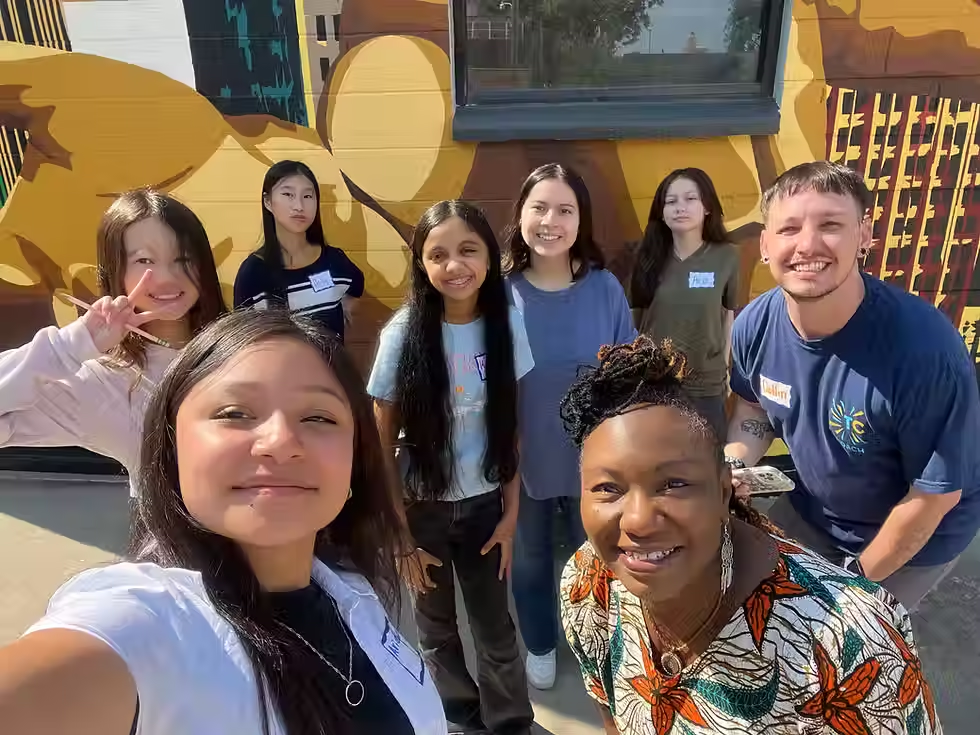Youth Leadership is Essential for Oklahoma's Future
- Tulsa Changemakers

- Aug 27, 2025
- 3 min read
Updated: Sep 15, 2025
By: Rachel Humphrey

Oklahoma students are already leading - in their schools and communities. Yet, Oklahoma recently received a 50th ranking in the nation in education. Investing in youth leadership is not just a “nice to have” but essential to improving outcomes. When students are engaged as leaders, they grow and build skills that support thriving schools, communities, and future workplaces.
As a fifth grade teacher for 10 years, I saw first hand when students were positioned as leaders, their motivation increased, they felt a sense of belonging, and had personal and academic growth. Quality educators know this and create these opportunities throughout the school day. During my last year teaching, I was a Tulsa Changemakers Coach, where I learned a whole new level of leadership for young people. I watched students with different view points, backgrounds, and ideas come together to create community impact. The pride students felt during their Pitch Night presentations was unmatched. Coaching Changemakers sparked a passion in me and showed me the true power of what happens when young people are engaged in high quality leadership programs. I now have the honor to serve as Program Manager with Tulsa Changemakers, the youth arm of Leadership Tulsa and as a proud parent to three children, like all parents I want spaces for my children and all Oklahoma young people to grow and thrive.
In our programs, we often ask students to agree or disagree with the following statements: “I have hope for my future,” “I have hope for the future of my city,” and “I have hope for the future of my state.” Overwhelmingly, students have high hope for their individual futures, and low hope for the future of the state. That 50th ranking is part of that why. Recently, our leadership council deliberated over what should be done to improve education. When talking about the impact this ranking has on students and communities, they named how it impacts student and teacher motivation as well as their ability to compete in college or jobs after graduating.
Only 16% of US youth have access to meaningful leadership development by age 25 according to The Future of Youth Leadership Development Practice: A Call to Increase Access and Quality issued by the Aspen Institute and Center for Expanding Leadership & Opportunity. While this statistic is stark, there is a path forward - expanding access to high quality programs.
Intentional leadership opportunities and programs develop critical skills that benefit students in their present and future. Skills like communication, taking initiative, and collaboration are core to quality leadership programs and valued by employers. Leadership pathways for young people build confidence, hope, and thriving schools and communities.
This year alone, over 680 students were positioned as leaders across multiple Changemakers programs. We are one of many organizations in Tulsa working to increase access to youth leadership programs. Increasing access alone is not enough. It is our responsibility to deliver high quality content.
We put that into action in all programs. This summer, we partnered with Empower-Ed during a week of their summer camp at KIPP High School. Throughout the week, students reflected on their individual strengths and collaborated to create a pitch for addressing a community challenge. Several students were former Changemakers. One even had us text his former Coach showing the positive impact adults can have in young people’s lives. That same student shared that during the school year nerves kept him from a presentation in class. But on Friday of camp, he collaborated with six peers to present three proposals to a group of adults he had never met before. This is the power of broadening access, creating positive spaces, and facilitating high quality content. It builds skills and supports young people to see themselves as leaders.
Youth leadership isn’t extra, it is essential. If we want to improve educational and life outcomes for Oklahoma students - we must invest in quality youth leadership opportunities in schools and communities. Our Oklahoma students deserve nothing less.

Comments